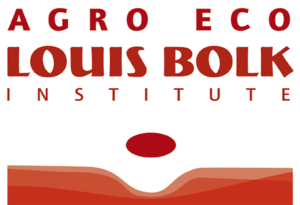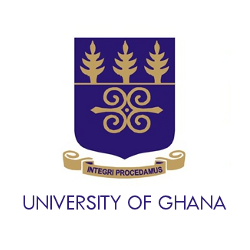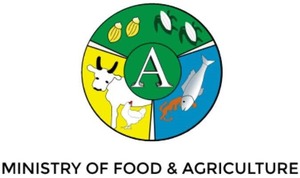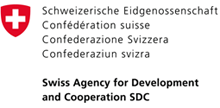Ghana
Agro Eco-Louis Bolk Institute

The Louis Bolk Institute (LBI) is an independent research, advisory, training and development institute that works to advance sustainable agriculture, nutrition and health. The institute is known for its participatory and systems approach (‘making systems work’) and is acknowledged for its implementation skills and practical solutions. Its results lead to healthy and sustainable growth of humans, animals, plants and soils. LBI was founded in 1976 and is located in Driebergen, the Netherlands. In Africa, LBI operates under the name Agro Eco-Louis Bolk Institute. In Ghana LBI has two offices in Accra and Kumasi. Agro Eco-LBI has a history of developing close to 80 value chains in the tropics, for businesses and for development NGOs. Agro Eco-LBI works primarily together with farmers, NGOs, government ministries, European Commission, the UN, Universities, Development Centres, research institutions including the CGIARs, and private companies.
More information about LBI: www.louisbolk.org
Contacts: Bo van Elzakker, Willem-Albert Toose
University of Ghana, College of Basic and Applied Sciences

Created in 1948 under the name Faculty of Agriculture, the now College of Basic and Applied Sciences of the University of Ghana, Legon, trains personnel to meet the demand for high level professional manpower in the agricultural sciences (including soils, crops and animals and), post-harvest, family and consumer sciences, agricultural economics, agricultural administration, agribusiness management in research, and teaching, advisory work and business management for Ghana and the West African sub-region. The College also has a School of Veterinary Medicine and School of Engineering. The schools, departments and research centres of the College conduct research, and provide extension services to government agencies, multinational agencies, private companies, and private individuals in the fields of agronomy, postharvest, agricultural economics, agribusiness and rural development and recycling of organic waste for agricultural purposes. The College of Basic and Applied Sciences aspires to be a College of excellence in research and training in all relevant areas that the various departments focus on. It seeks to provide a congenial environment for the training of highly qualified and enterprising agriculturist, scientists and business practitioners for the purposes of training/teaching, research and extension.
More information about University of Ghana: www.ug.edu.gh
Contact: Irene Egyir
Directorate of Crop Services, Ministry of Food and Agriculture (MOFA)

The Directorate of Crop Services of the Ministry of Food and Agriculture (DCS – MOFA) is one of the technical directorates of the Ministry of Food and Agriculture (MOFA) in Ghana. It is mandated to ensure the development of a vibrant crops sub sector within the agricultural sector of the Ghanaian economy. It does this by promoting and facilitating the production, processing, distribution and marketing of food, industrial and export crops through the dissemination of appropriate and innovative technologies. DCS – MOFA also promotes the sustainable use of soil and water resources for agricultural production. In addition, the Directorate promotes and facilities the production and distribution of quality planting materials for farmers in collaboration with Research, Extension Services Providers and the private sector. Among its many functions, the Directorate routinely advises the Minister of Food and Agriculture on policies relating to the crop sub sector development. These activities are implemented through the technical divisions of the Directorate which are: i) Seed Service/Agricultural Stations/Block Farm Unit, ii) Food Crops Unit (Root/Tubers and Plantain, Cereals and Legumes Unit (maize, rice, soy beans, etc.), iii) Tree & Industrial Crops Unit (cotton, oil palm, cashew, rubber, coconut etc.), iv) Environment, Land & Water Management Unit and v) Horticultural Crops Development Unit (Fruit and Vegetables). The Horticultural Crops Development Unit is also responsible for Ecological organic Agriculture Development.
Contact: Esther Agyekum
 This website was archived on December 2, 2022 and is no longer updated.
This website was archived on December 2, 2022 and is no longer updated.



